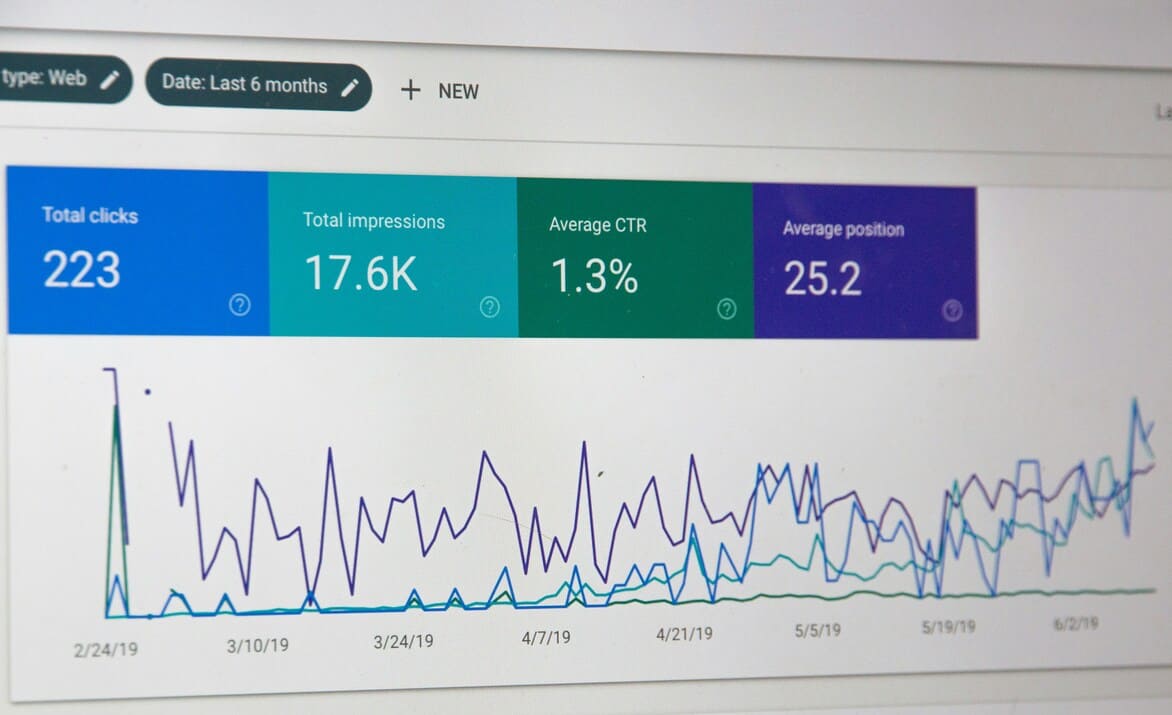The Ultimate Guide to SEO in France: How to Rank on Google.fr
Boosting your blog’s ranking on Google.fr isn’t a matter of luck—it’s a strategic process. If you want your website to gain visibility and attract more readers, securing a spot on the first page is crucial.
Consider your own browsing habits: how often do you go beyond the first page of search results? The majority of users rarely scroll past the top ten links, making those positions highly competitive yet essential for success.
If the idea of ranking on Google’s first page seems overwhelming, don’t worry. This guide breaks down the key steps you need to take to optimize your website for Google.fr and rise through the ranks. Let’s get started!

Why Does French SEO Require a Specialized Approach?
SEO isn’t a one-size-fits-all strategy, and ranking on Google.fr requires a tailored approach.
France is the 7th largest e-commerce market in the world, with a digital economy worth over $150 billion and more than 90% of the population using the internet. However, breaking into this market is challenging—over 60% of clicks go to the top three search results, and competition is fierce, especially for non-French businesses.
France has distinct search habits, cultural nuances, and linguistic preferences that impact how users engage with content. From keyword variations to local search trends, optimizing for the French market means more than just translating content—it requires a deep understanding of what resonates with French audiences.
If you don't know which SEO agency to choose from, we have a guide with the top SEO companies in France.
Key differences between Google.com and Google.fr
While Google’s algorithm operates globally, Google.fr functions differently from Google.com in several ways. First, search intent varies—French users often phrase queries differently, favoring formal language and precise terms. On top of that, local SEO holds greater weight, with Google.fr prioritizing websites with a strong French presence, including .fr domains and locally hosted sites.
Another key difference lies in featured snippets and SERP (Search Engine Results Page) layouts. Google.fr tends to favor French-language sources, even when competing with major global websites. Also, certain industries experience different ranking dynamics, as Google.fr highlights region-specific businesses over international competitors.
The unique characteristics of French search users
French internet users have distinct behaviors that impact SEO strategies. One notable trend is their preference for quality and credibility—French users tend to be more skeptical of overly promotional content and value in-depth, well-researched articles. This means that authoritative, content-rich pages perform better than generic, keyword-stuffed posts.
And obviously, language plays a critical role. Unlike English, French keywords often have multiple variations due to gendered words and formal vs. informal speech. This affects search queries and keyword research, making it essential to understand how French audiences phrase their searches.
Why standard SEO strategies often fail in the French market
Many companies believe they can simply translate their website using Google Translate or ChatGPT and instantly rank on Google.fr—but that’s far from reality. In most cases, this approach won’t even get your site to appear in French search results because the translated keywords often don’t match what real French users are searching for. SEO isn’t just about words; it’s about search intent, and if your keywords don’t align with how French users naturally phrase their queries, you’ll be invisible.
Even if you do manage to attract visitors, poor translation can instantly drive them away. Simple mistakes, awkward phrasing, or unnatural sentence structures can make French users go "Euh... c'est bizarre" and leave within seconds. French consumers expect content that feels native, and a poorly localized site can damage trust.
To succeed, websites must invest in proper localization, ensuring they target the right keywords (which can be tricky due to regional expressions) and provide a smooth, authentic user experience. Otherwise, they risk losing both rankings and potential customers.
For more information, check out our guide on the SEO prices in France.
How Is the French Search Market Different in 2025?
While the global search landscape is rapidly evolving, the French search market tends to change more slowly than its English-speaking counterparts.
French users are generally more skeptical of new digital trends and take longer to adopt technologies like AI-driven search. Unlike in the U.S. or UK, where Google’s Search Generative Experience (SGE) is transforming search behavior, in France, traditional search methods still dominate.
What Domain Strategy Works Best for French SEO?
For ranking on Google.fr, having a .fr domain is one of the strongest signals of local relevance. Google prioritizes French-hosted websites and country-specific domains, making a .fr extension ideal for businesses targeting a French audience.
However, if your brand operates internationally, a .com domain with a dedicated French subdirectory (e.g., example.com/fr/) can also work, as long as it's properly localized. Subdomains (fr.example.com) are less effective but still viable.
Additionally, hosting your site on French servers and using hreflang tags ensures Google understands your content is tailored for French users, boosting your chances of ranking well on Google.fr.
How to Conduct Effective French Keyword Research?
SEO tools like Ahrefs, SEMrush, and Google Keyword Planner are great for researching French keywords, but they must be used by a native French speaker to be truly effective. While these tools provide search volume and keyword suggestions, they don’t account for linguistic nuances and cultural differences.
Directly translating keywords from English often leads to poor results because many terms simply aren’t used the same way in France. A native speaker can identify the right phrases that French users actually search for, avoiding common pitfalls like unnatural wording or low-search-volume terms. Proper keyword research requires both data analysis and local expertise to ensure your content ranks well on Google.fr.
How to identify high-converting French search terms
Finding the right French search terms isn’t just about high search volume—it’s about user intent.
The best keywords attract users who are ready to engage, whether that means reading an article, signing up for a service, or making a purchase.
To identify high-converting French keywords:
- Focus on long-tail keywords that indicate intent (e.g., "meilleur abonnement internet pas cher" instead of "abonnement internet")
- Analyze competitor keywords on Google.fr to see what works in your niche
- Prioritize commercial and transactional terms if your goal is conversions ("acheter chaussures running femme")
Why direct translation fails (and what to do instead)

Many businesses assume they can translate their English keywords into French and rank—but this approach rarely works. Why? Because French users often use completely different terms than their direct translations... And to make it even more complicated, many French keywords have multiple variations, making it harder to pinpoint the best ones for SEO.
For example:
- "Laptop" can be translated as "PC portable", "ordi portable", or "ordinateur portable"—all of which may be used interchangeably, but one might perform better than others.
- "Freelancer" is commonly translated as "Freelance" in France, as it’s broadly used for lack of a simpler term, but alternatives like "travailleur indépendant" or "indépendant" exist and may be preferred in certain contexts.
- "Car rental" translates as "Location de voiture", but in everyday language, users often search for "louer une voiture".
Instead of relying on direct translation, it’s essential to conduct in-depth keyword research in French from the start. Use SEO tools, analyze real search behavior on Google.fr, and work with a native French speaker or a SEO Agency specialized in French SEO to ensure your keywords resonate with local users and capture all relevant variations.
How to Create Content That Resonates with French Users?
When crafting content for French users, it's crucial to align with their preferences for quality, clarity, and authority. French audiences value authoritative content that provides real value without unnecessary fluff.
They prefer well-structured, direct, and informative writing that gets to the point while being thoroughly explained. If your content feels too promotional or doesn’t deliver genuine insights, French users are quick to disengage.
Content length and formatting preferences for French audiences
French users tend to favor longer, in-depth content that offers clear, well-structured information. While shorter content may work for some niches, detailed guides or articles with a minimum of 1,500 words tend to perform better.
Regarding formatting, French readers appreciate organized, scannable content. Use headings, bullet points, and images to break up text and make it easier to digest. Visual elements like charts, graphs, and relevant images are highly valued as they add to the understanding and authority of the content.
What Link Building Strategies Work in France?
Building quality backlinks is essential for ranking in France, but cultural and language differences must be considered to create effective strategies. To succeed in French link building, focus on building genuine relationships with local webmasters and engaging with relevant, authoritative sites in your niche.
How to identify valuable French link opportunities
Start by looking for French websites that align with your industry, focusing on local blogs, news outlets, or business directories. These sites are more likely to link back to content that is tailored to French users. Additionally, prioritize websites with high authority, such as .fr domains or those with a strong regional presence. Keep an eye on local influencers and industry-specific French publications for collaboration opportunities.
Effective outreach approaches for French webmasters
Most French website owners struggle with English and may have difficulty connecting with you if you reach out in English. In fact, your outreach email may be completely ignored because the person simply can’t understand or doesn’t feel comfortable responding in English.
To avoid this, it’s crucial to communicate in French. Many French webmasters are open to collaborations but are more likely to respond to outreach from French speakers. Being respectful of the local language and culture increases your chances of a positive response. Personalize your messages, show genuine interest in their content, and highlight how your collaboration would benefit both parties.
At FrenchRank, we can help you reach out organically to these webmasters and engage with them in French, ensuring that your backlink-building efforts are more successful. By leveraging our expertise in French outreach, we’ll build stronger connections and secure high-quality backlinks for your website.
Conclusion
In conclusion, mastering SEO in France requires a deep understanding of local search behaviors, language nuances, and cultural preferences.
From conducting thorough keyword research to adopting the right domain strategy and building quality backlinks, each step is crucial to your success.
French users expect authoritative, well-structured content, and effective link building requires communication in French to foster quality relationships with local webmasters.
If you are ready to boost your rankings on French searches, contact FrenchRank today and get started with your French SEO journey!